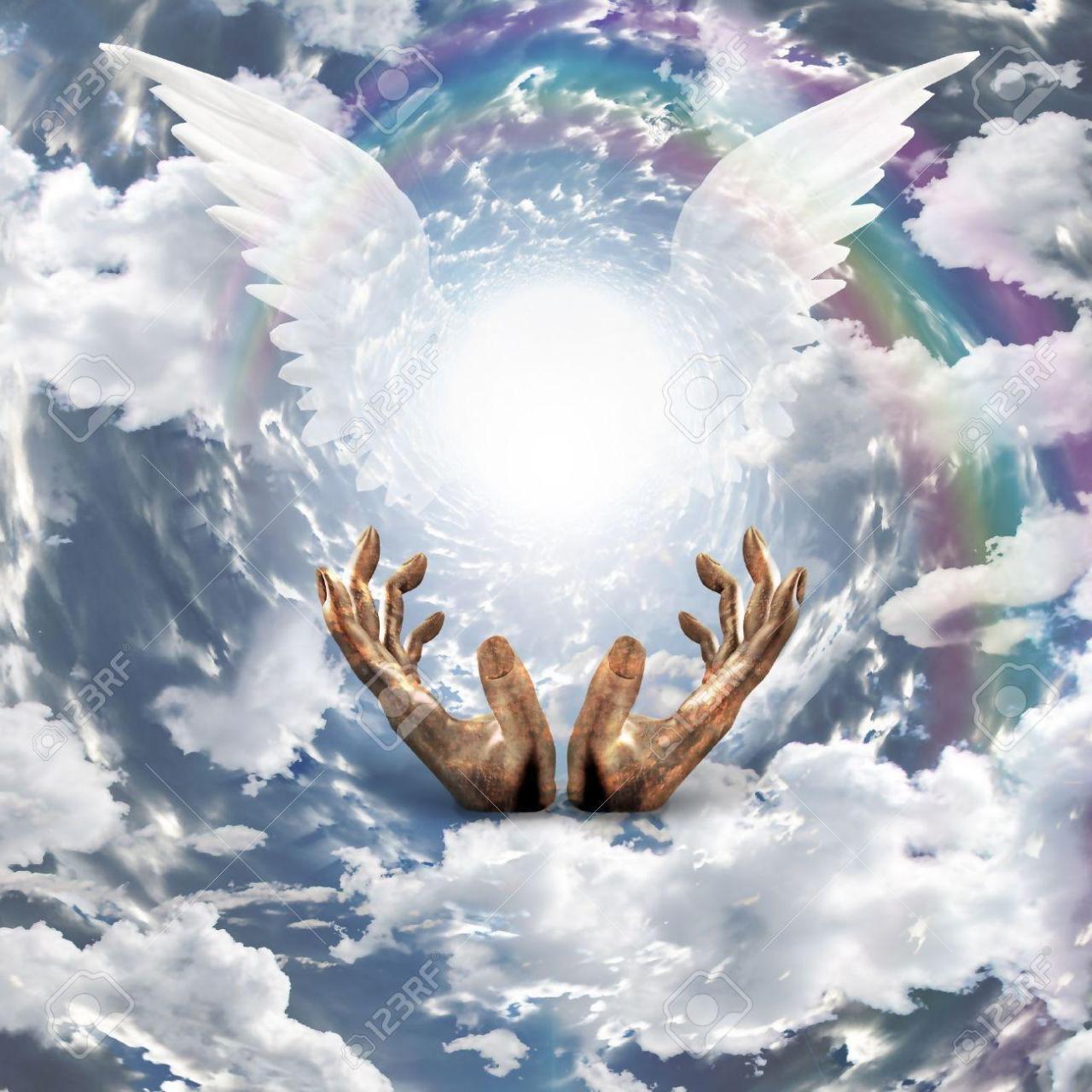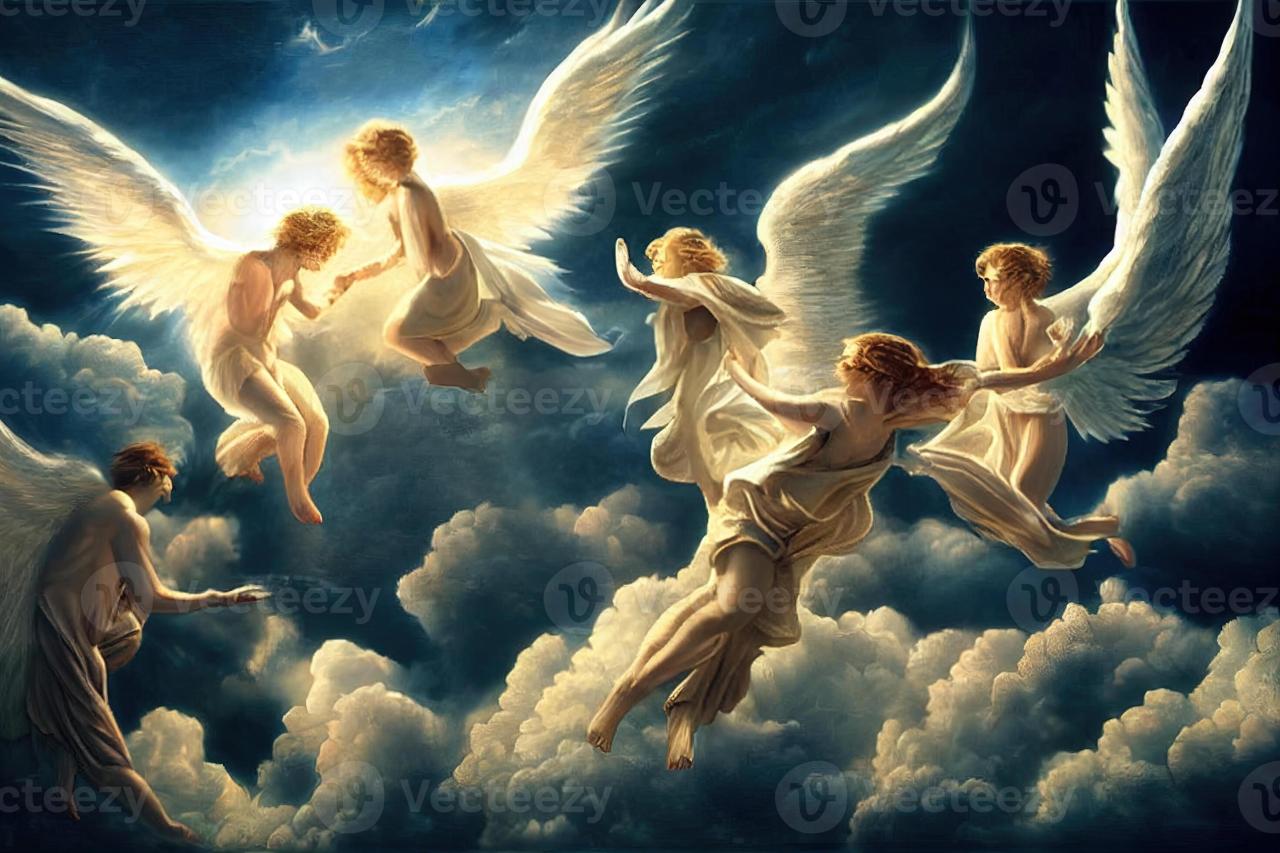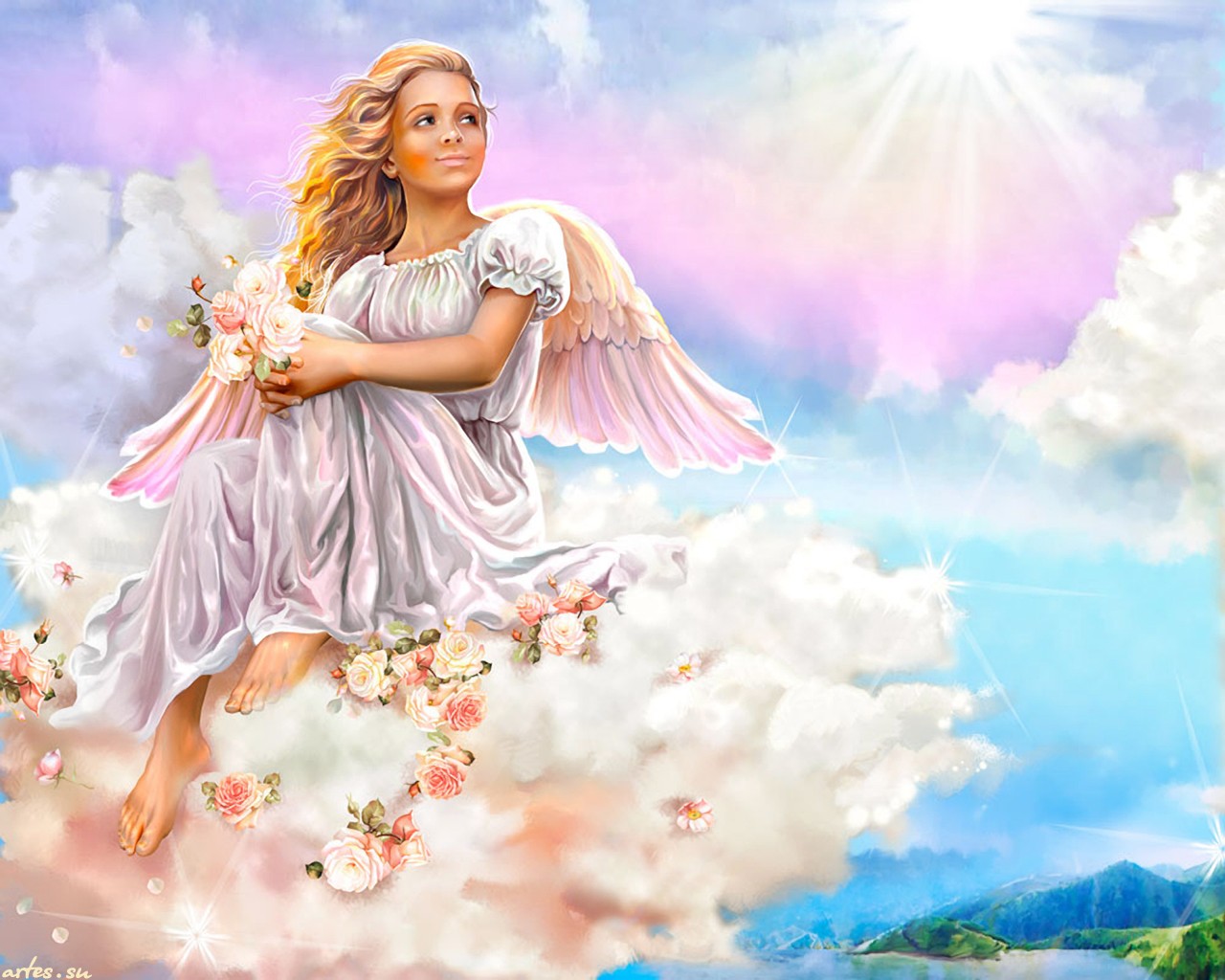Heavenly angels, ethereal beings of light and grace, have captivated human imagination for millennia. From the hallowed halls of mythology to the sacred texts of religion, these celestial entities have played a profound role in shaping our understanding of the divine and our place within it.
Their ethereal presence has inspired countless works of art, literature, and music, leaving an enduring legacy that continues to enchant and inspire.
Heavenly Beings in Literature and Mythology
Throughout history, celestial beings have captivated human imagination, inspiring countless works of literature and mythology. These heavenly entities possess extraordinary powers, embodying virtues and playing pivotal roles in shaping human destinies.
From the celestial realms of ancient mythologies to the ethereal landscapes of modern fantasy, heavenly beings have taken on diverse forms and personalities. They serve as guardians, messengers, and protectors, wielding their divine powers for both good and evil.
Angelic Beings in Various Cultures
Across different cultures and belief systems, heavenly beings known as angels have been depicted with unique characteristics and roles. In Christianity, angels are celestial messengers who serve as intermediaries between God and humanity. They are often portrayed as having wings, halos, and glowing auras.
In Islam, angels are known as “malaika” and are believed to be created from pure light. They are tasked with carrying out God’s commands, including recording human deeds and escorting souls to the afterlife.
In Judaism, angels are called “malachim” and are described as celestial beings with specific functions. They are often depicted as having multiple wings and eyes, and they play a vital role in the creation and maintenance of the universe.
| Name | Origin | Notable Traits |
|---|---|---|
| Gabriel | Christianity, Islam | Messenger angel, often depicted with wings and a trumpet |
| Michael | Christianity, Islam, Judaism | Archangel, leader of the heavenly host, known for his strength and courage |
| Raphael | Christianity, Islam, Judaism | Healing angel, often associated with medicine and travel |
| Metatron | Judaism | Archangel, considered the highest-ranking angel in the heavenly hierarchy |
| Azrael | Islam | Angel of death, responsible for taking souls to the afterlife |
| Uriel | Christianity, Islam, Judaism | Angel of wisdom and light, often depicted with a book or scroll |
The Concept of Heavenly Angels in Different Religions
Heavenly angels are celestial beings often depicted as messengers, protectors, and servants of the divine in various religions. Their roles, significance, and relationships with the divine vary across different faiths, but they generally represent a connection between the mortal and spiritual realms.
Christianity, Heavenly angels
- Angels are created beings, distinct from God and humans.
- They are organized into a hierarchy, with archangels at the top.
- Archangels include Michael, Gabriel, Raphael, and Uriel.
- Angels are messengers, protectors, and intercessors between God and humanity.
Islam
- Angels are created from light and are pure beings.
- They are not gendered and do not possess free will.
- Angels are responsible for carrying out God’s commands and overseeing the universe.
Four archangels are named
Jibril, Mika’il, Israfil, and Azrael.
Judaism
- Angels are created beings, but their nature is not fully defined.
- They can appear in human or animal form.
- Angels are messengers, protectors, and agents of God’s will.
- The archangel Metatron is considered the highest-ranking angel.
Heavenly Angels in Modern Culture
Heavenly angels continue to captivate human imagination in contemporary art, literature, and popular media. Their depictions have evolved significantly, reflecting changing societal values and spiritual beliefs.
In modern art, angels often symbolize purity, innocence, and divine protection. Artists like Marc Chagall and Frida Kahlo incorporated angels into their paintings, portraying them as ethereal beings with delicate wings and radiant auras. In literature, angels play diverse roles, from celestial messengers in works by C.S.
Lewis to enigmatic protectors in urban fantasy novels by Cassandra Clare.
Popular Media
Popular media has embraced heavenly angels as compelling characters and plot devices. In films like “City of Angels” and “The Prophecy,” angels are portrayed as intermediaries between heaven and earth, struggling with human desires and the complexities of good and evil.
Television series such as “Supernatural” and “Lucifer” feature angels as supernatural beings with extraordinary powers, engaging in battles against demons and other celestial entities.
In video games, angels often serve as allies or guardians, aiding the player in their quests. Their presence adds an element of spirituality and cosmic significance to these immersive virtual worlds.
Symbolism and Significance of Heavenly Angels
Heavenly angels symbolize purity, hope, and divine guidance. They represent the divine realm and serve as intermediaries between mortals and the divine. Angels are often depicted as messengers, protectors, and guides, providing comfort, support, and protection to those in need.
Messengers of the Divine
Angels are often portrayed as messengers of God or other divine beings. They deliver messages, prophecies, and guidance to mortals, helping them understand the divine will and purpose.
Protectors and Guardians
Heavenly angels are also seen as protectors and guardians. They defend against evil forces and provide a sense of safety and security to those they watch over.
“For he will command his angels concerning you to guard you in all your ways.” (Psalm 91:11)
Intermediaries Between the Mortal and Divine Realms
Angels serve as intermediaries between the mortal and divine realms, bridging the gap between humanity and the celestial. They carry prayers and petitions from mortals to the divine and bring back divine blessings and guidance.
“Are they not all ministering spirits sent forth to serve, for the sake of those who are to inherit salvation?” (Hebrews 1:14)
Last Point
Heavenly angels, with their ethereal beauty and profound symbolism, have left an enduring mark on human consciousness. They serve as a reminder of the divine within us, a beacon of hope in times of darkness, and a source of inspiration for generations to come.
Q&A: Heavenly Angels
What is the role of heavenly angels in different religions?
In Christianity, angels are messengers and protectors, while in Islam, they are intermediaries between God and humans. In Judaism, angels are seen as intermediaries and guardians.
How are heavenly angels depicted in art?
Angels are often depicted with wings, halos, and flowing robes. They may be shown holding musical instruments, scrolls, or other symbolic objects.
What is the significance of heavenly angels in modern culture?
Angels continue to be popular figures in art, literature, and popular media, often representing hope, purity, and divine guidance.


